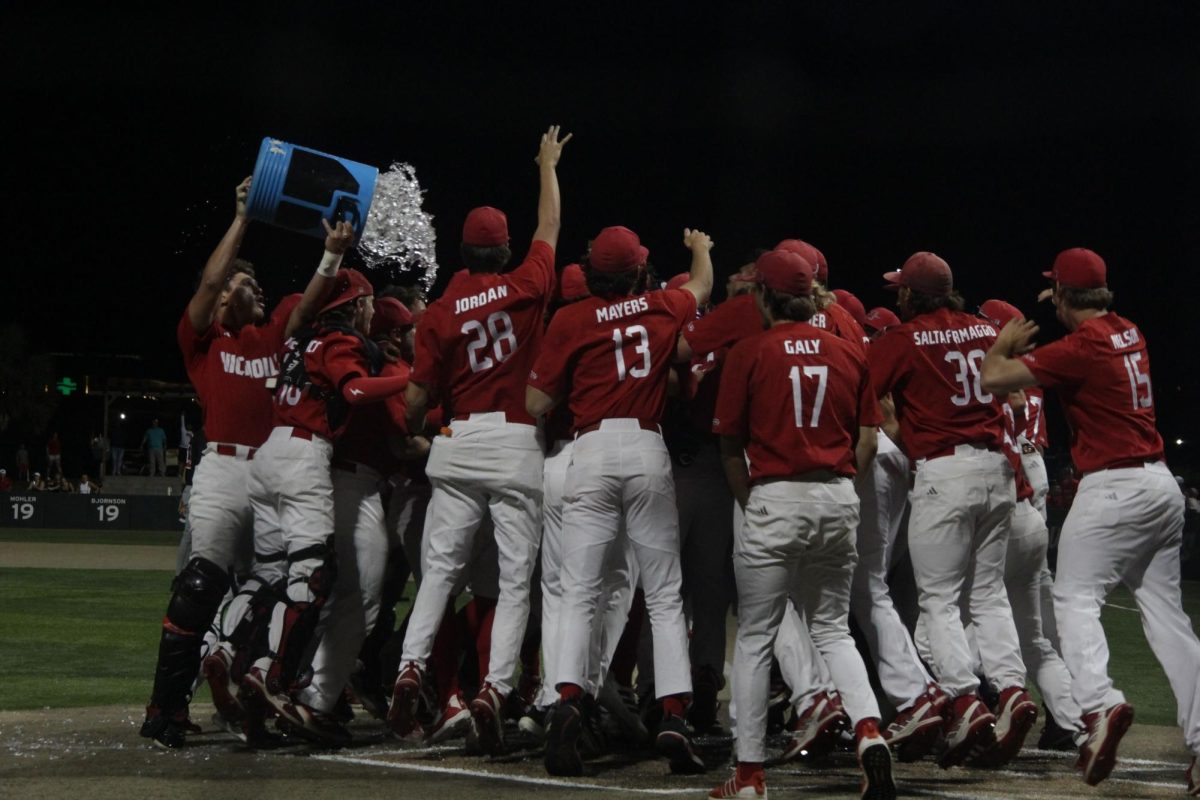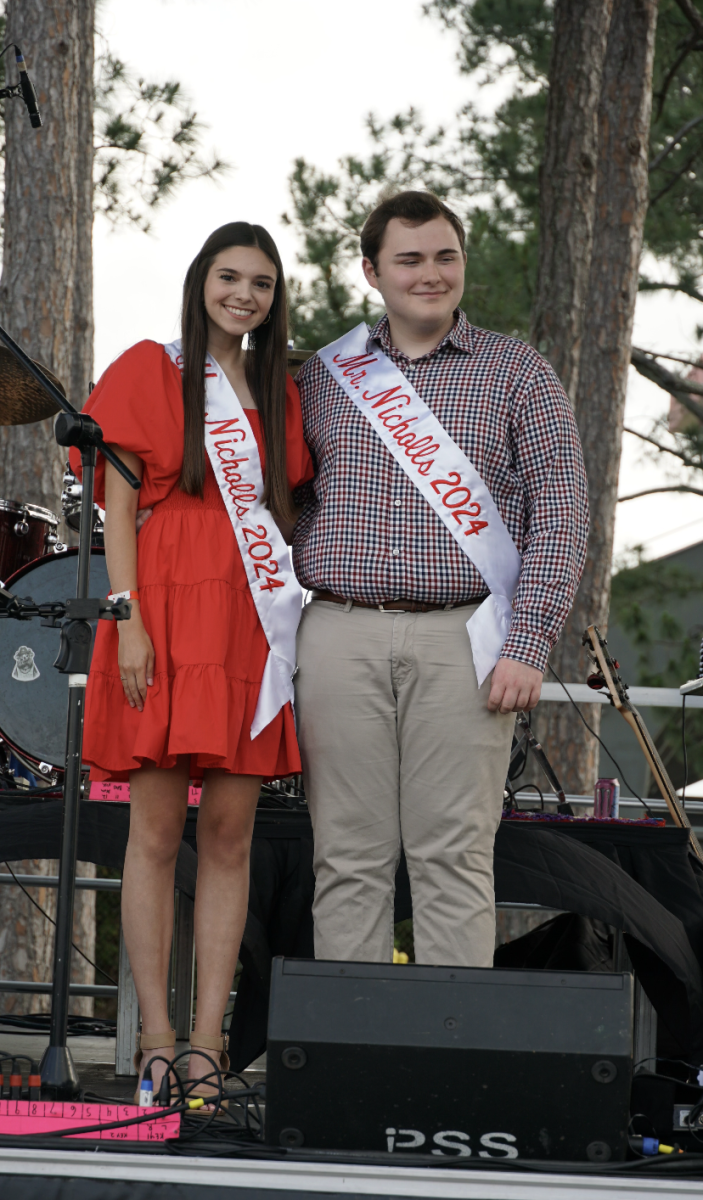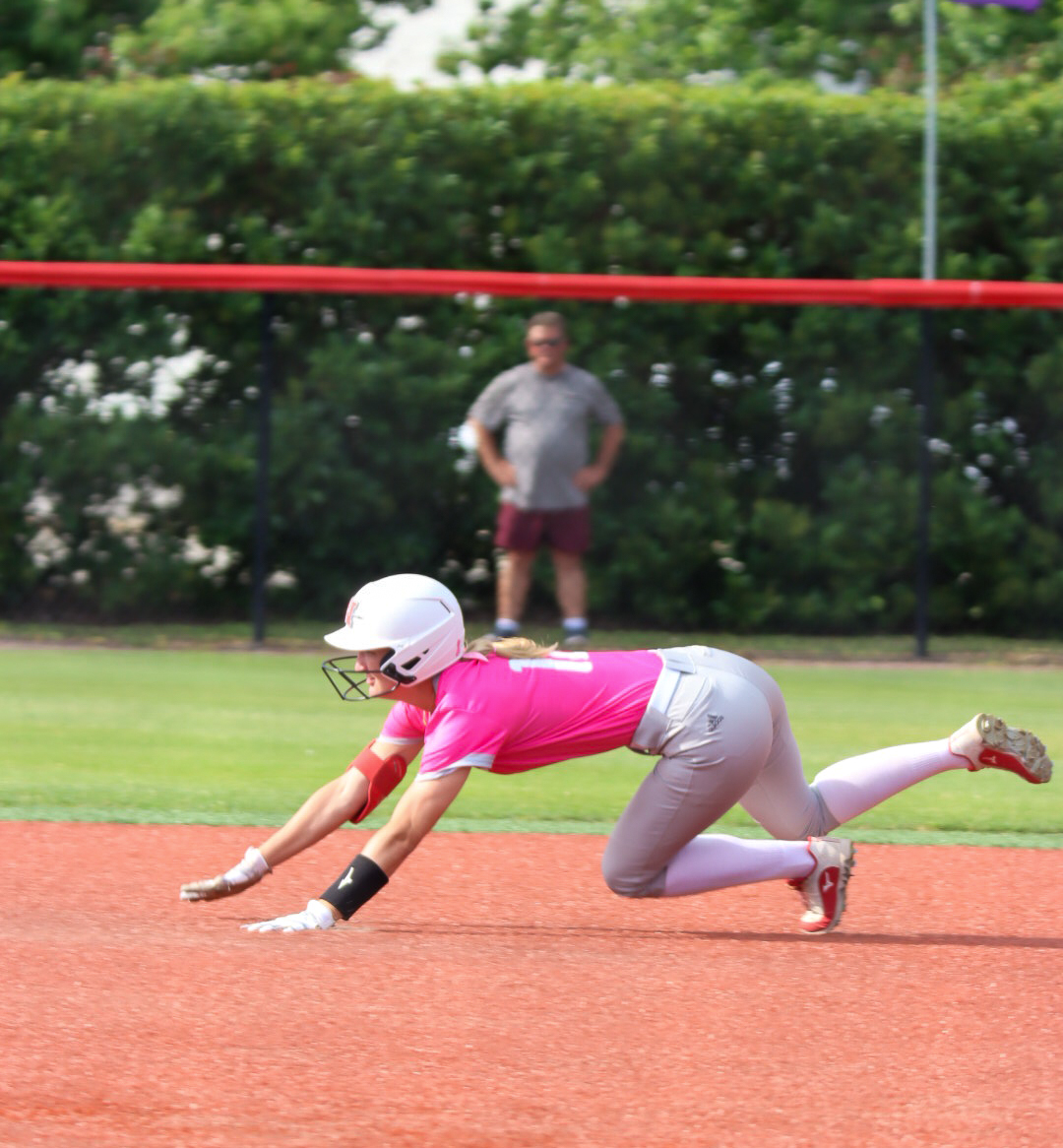New Orleans might be best known for jambalaya, Mardi Gras and Bourbon Street, but The Big Easy has much more to offer than food and debauchery. On Saturday, Nov. 9, seven Nicholls students were given the opportunity to experience “Literary New Orleans.” This program consisted of a walking tour of the city, where they visited the places discussed in their English 475 readings, and a discussion with three Louisiana authors whose works they read.
“It seemed like a great way to learn. We looked up the places we read about and decided to tour those areas, and we also read about the author’s work and discussed it,” Olivia Pass, professor of languages and literature, said.
“Each student was told to pick a poem to teach to the class, and it was nice to hear what the authors meant by their work since the class had guessed at the meaning of the piece.”
The literary tour stopped in such places as the dueling oaks, St. Louis Cathedral, St. Anthony’s and Faulkner Books. These are places that were mentioned in the works of novelist Shirley Ann Grau, poet Catherine Brosman and poet Mona Lisa Saloy.
These authors were available that night for a two-hour meeting with the students and their spouses at the Jackson Square Condominiums.
“I got to know them from my being the editor of the Louisiana English Journal. I have established friendships with them and they were kind and generous enough to take the time to meet with us on their works,” Pass said.
The intimate meeting began with Catherine Brosman reading poems from her book “Places in Mind.” She chose to read “The River,” “Jesus of Magazine Street” and at the request of the students “Crab Cakes.”
In the poem “Crepe Myrtles,” dedicated to Nicholls’ own David Middleton, distinguished service professor of languages and literature, she talks about the titular trees that run along Prytania Street in New Orleans.
“But the trees seem fresh and lively, like a jogger at a stoplight, flexing taut and muscled limbs, bearing sculpted trophies- fuchsia, pink, magenta, purple, white or lavender- although the aging trunks are split and cracked with bluish veins, like lesioned skin or and old injury,” Brosman wrote.
She said she dedicated the poem to Middleton partly because he is a jogger.
“He has encouraged me and my writing in the decade that I have known him. He has certainly been a great writer friend; it was a gesture of friendship,” Brosman said.
Middleton said he met Brosman in 1993 at the Humanist of the Year ceremony in New Orleans. He had nominated his professor from Louisiana State University, Donald Stanford, for the award, and she was there to support him. Brosman and Middleton talked, and found that they had many things in common.
“We struck a correspondence, and wrote back and forth until there was E-mail and then we would E-mail back and forth. She is one of my closest poet friends, and we read and critique each other’s work,” Middleton said.
“I do not know why she dedicated a poem to me, I guess it was out of friendship, like most authors do. In my first book, “Burning Fields,” I wrote a poem called “The Vision” about a dream of my country grandmother. That is one of her favorite poems of mine, and in it, I talk about crepe myrtles. But that is just a guess, it was a complete surprise.”
Brosman said that many novelists and some poets focus on the French quarter when writing, but that she does not live in the French Quarter, instead she focuses on a different side of New Orleans.
“I don’t mean to make a fetish of writing only about uptown by any means, but this is New Orleans darlin’. I have to write about what I know, and most of my stuff is, in fact, set in this neighborhood,” Brosman said.
Mona Lisa Saloy read her poems “Daddy’s Philosophy 2,” “Jim Crowe,” and “The ‘N’ Word.”
“Daddy’s Philosophy 2” is one of a series of poems about her father, who lived in the Seventh Ward of New Orleans.
“La joie de vivre. The joy of life I ask. Sure, the New Orleans motto he says. The reason for heavenly hips, drumstick thighs and huggable bellies. … We work like we don’t need the money, we love like we’ve never been hurt, we dance like nobody’s watching and we eat like there is no tomorrow,” Saloy wrote.
Saloy said she is a daddy’s girl, and the last of five children, from her father’s second marriage.
“He had three families. He had three wives, and he buried two. Actually, his first wife outlived him,” Saloy said.
Her father had Alzheimer’s, and Saloy came home to care for him.
“We had eight years together. I spent a lot of time in court to get rid of the people who had started taking over his home, but it was wonderful for me to come full circle with my father,” she said.
“I enjoyed ‘Daddy’s Philosophy 2,’ because it really had that touch of hominess that I enjoy,” Michelle Russo, graduate student from Donaldsonville, said.
Saloy also read a poem that has caused much controversy. The poem, “The ‘N’ Word,” focuses on the use of the word “nigger” in African American culture.
“When they cross cultural boundaries and say what black is and black isn’t I really, really responded strongly to that because certainly the ‘N word’ is a derogatory term, but there is a way that black people use it that is very affectionate,” Saloy said.
She said new dictionaries that are coming out would not have the “N” word in them unless the dictionary is a slang or culture dictionary.
“So, I wanted to document the way we use it as a folk,” she said.
In “The ‘N’ Word,” Saloy uses the word to convey the affectionate way that African Americans use the word.
“So I say that I only call a nigger a nigger when appropriate … So, I hope that no card-carrying African American, or no stamped, certified, colored, or negro is ever insulted case I call a nigger my nigger,” Saloy wrote.
Lisa Harris, education graduate student from Patterson, said “The ‘N’ Word” had a lot of significance for her. She said she does not allow her son to use the word, but would like him to read the poem.
“I realize after hearing the poem, since this was my very first time hearing it in a way that gives it some freedom, and it gives me comfort to hear it,” she said.
Saloy said she was not letting them “take her word.”
Shirley Ann Grau, a New Orleans novelist, was also on hand to discuss with the students her Pulitzer Prize winning novel “Keepers of the House.”
As indicated on the back cover of the novel, “it is the story of William Howland and Margaret Carmichael and their love for each other.”
Grau talked of how fiction and novel writing differed from that of writing poems. She explained that fiction writing was much more logical than writing poetry.
“It is a matter of training, essentially; it’s probably something much closer to inspiration,” Grau said.
Grau said nothing exciting or glorious ever happens to her, and that she was in her mid-thirties when she won the Pulitzer.
Pass said that Grau beat out some big names for the honor, and that winning at Pulitzer must be like “ta-da.”
“I hung up on the Pulitzer committee when they called. I did not have time right then for it,” she said.
“There seems to be a time when practical jokes become the height of sophistication.”
Grau said everyone would much like to have trumpets blowing in the background, but it just does not happen.
While the students learned much that day, experiencing “Literary New Orleans,” even the authors walked away with more than they came in with. Conversing with one another and sharing stories, the room was filled with seriousness and laughter in the true New Orleans fashion.


![Assistant coach Cody Livingston [#53] talking with pitcher Nico Saltaformaggio [#38] on the mound(5/12).](https://thenichollsworth.com/wp-content/uploads/2024/05/LivingstonNicoHuddle-vs-Lamar-1200x800.jpg)




